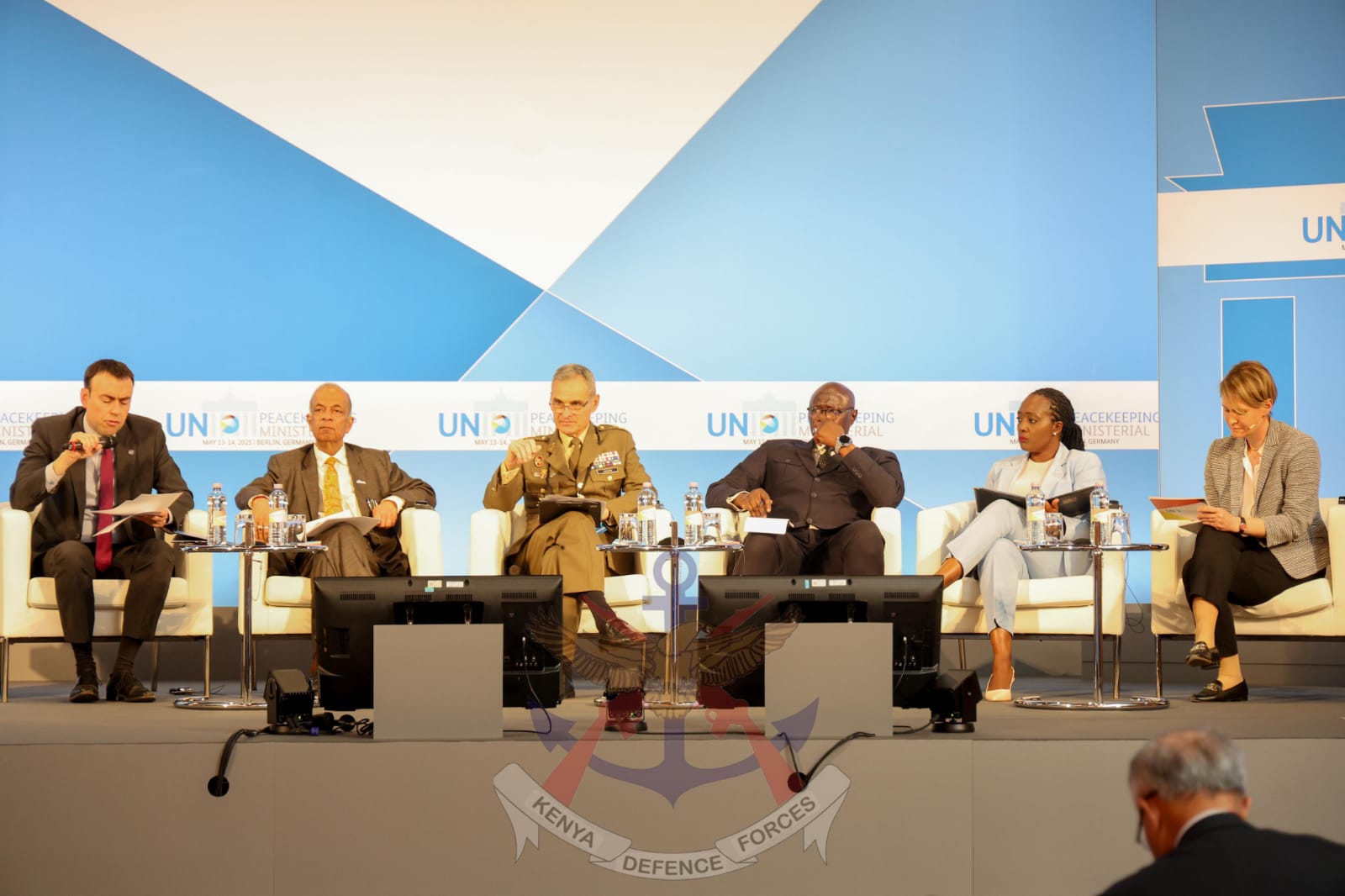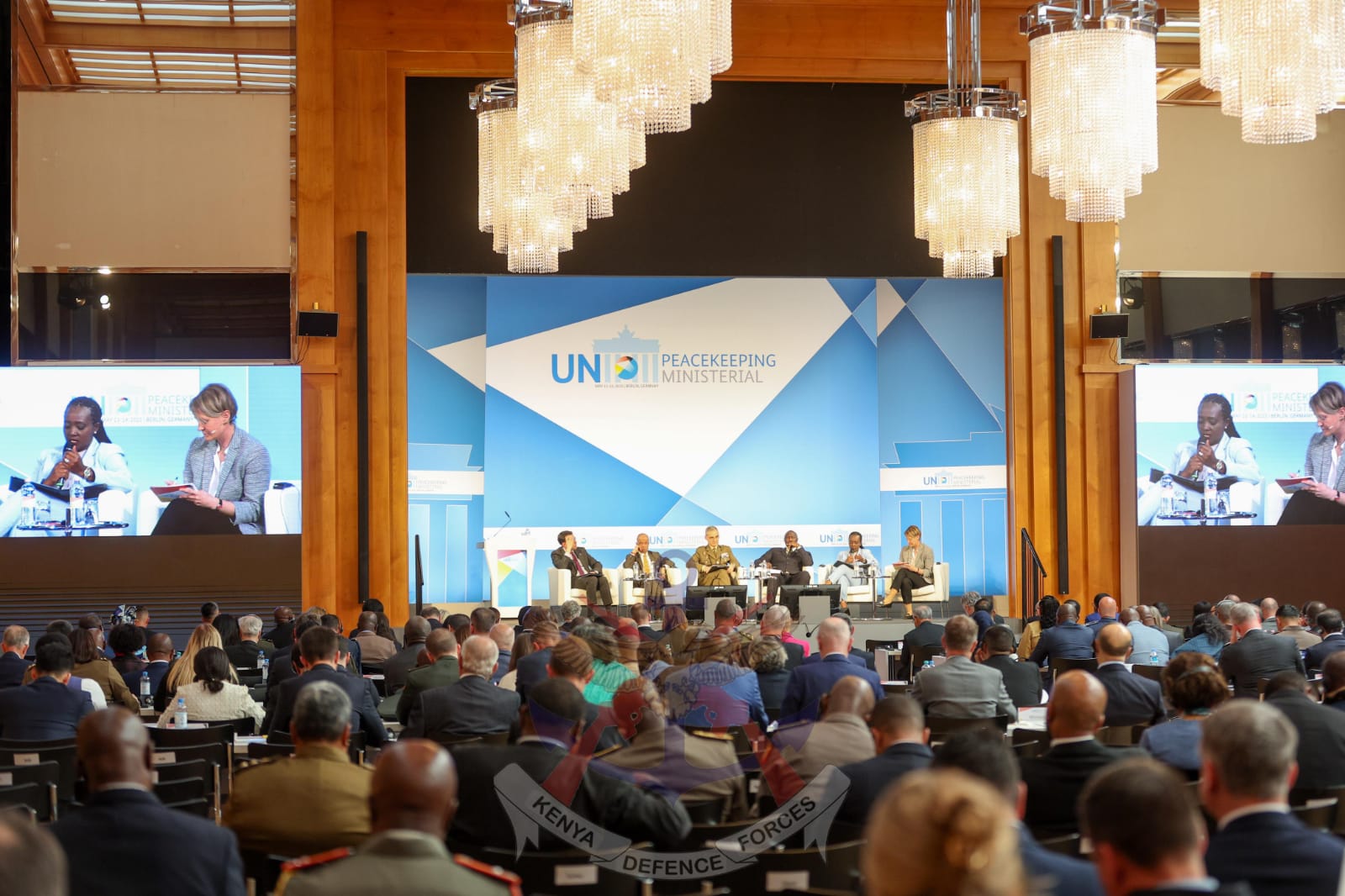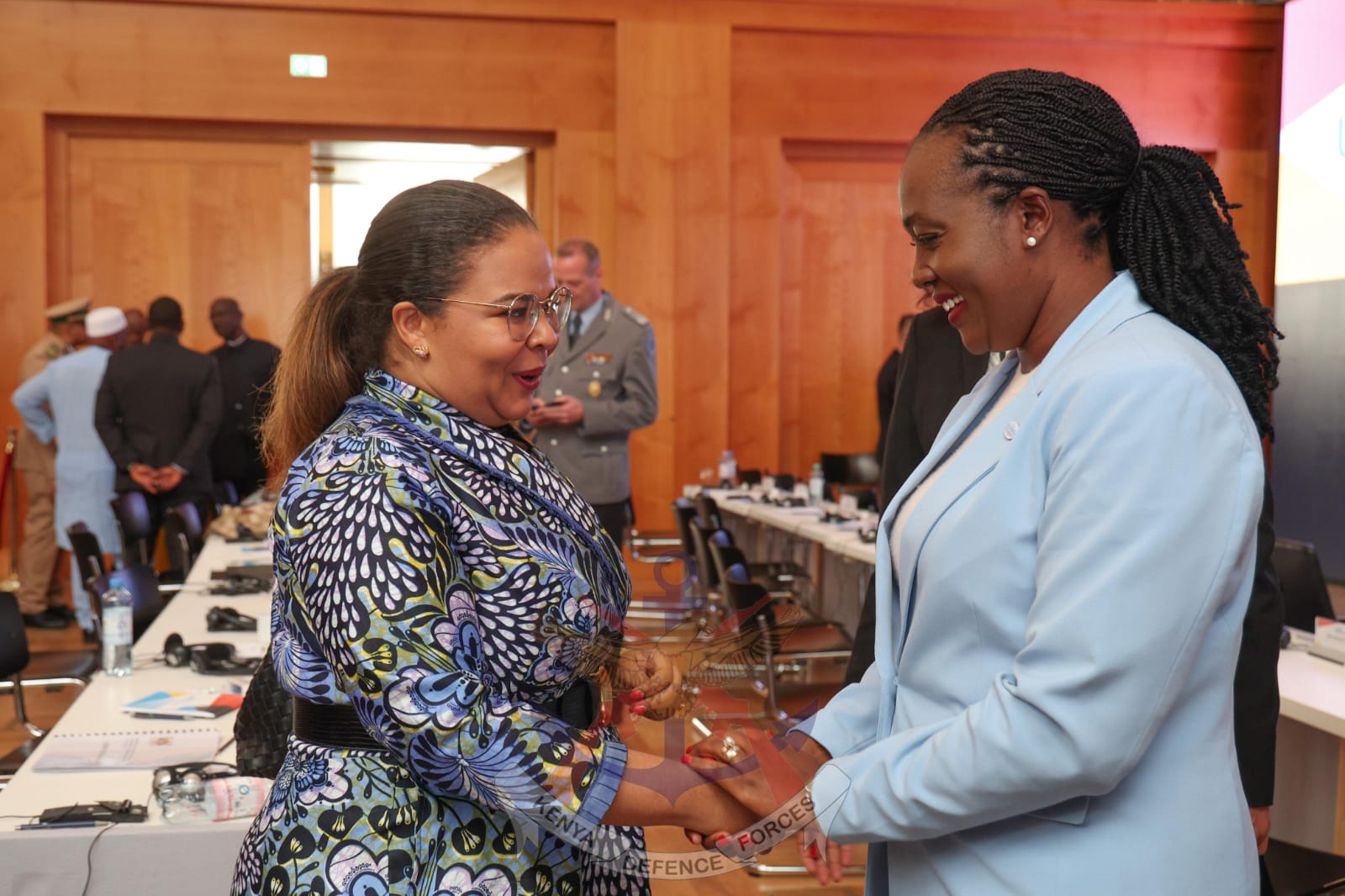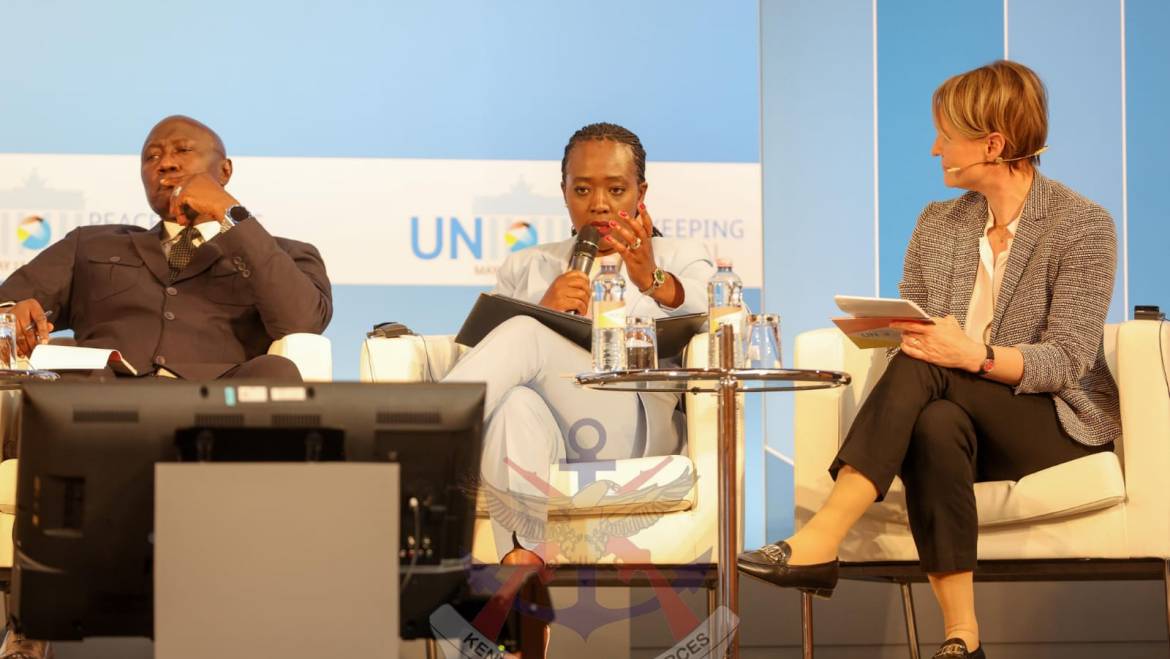Defence Cabinet Secretary Hon Soipan Tuya has advocated for the wholesome reform of the United Nations (UN) peacekeeping ecosystem.
“Kenya is firm in its support for the wholesome reform of UN peacekeeping operations and urges UN member states and the secretariat to embrace transformative approaches that make peacekeeping more dynamic, responsive, resilient and fit-for-purpose,” Hon Tuya said.
The Cabinet Secretary spoke during a high level panel discussion on peacekeeping reform at the ongoing 2025 UN Peacekeeping Ministerial Conference in Berlin, Germany.
The forum was convened to discuss reform of UN peacekeeping efforts beyond A4P/A4P+, by among other interventions, entrenching a culture of efficiency in peacekeeping operations.
At the same time, the Cabinet Secretary reiterated Kenya’s continued commitment to regional and global peacekeeping efforts.
Citing Kenya’s experience in the AU Mission in Somalia, the Cabinet Secretary underscored the importance of embedding community engagement in mission design and implementation.
Furthermore, Hon Tuya advocated for decentralized decision-making saying it was essential in “improving the agility of operations”.
She said MINUSMA in Mali had shown that decentralization empowers field commanders to make timely tactical decisions leading to enhanced mission effectiveness, particularly in high-risk theatres.
“Strengthening mechanisms for intelligence sharing among Troop and Police Contributing Countries (T/PCCs) and with host nations will significantly improve situational awareness, risk mitigation, and mission planning.
“These reforms, taken together, offer a pathway to revitalized peace operations that are better equipped to deliver on their mandates and adapt to 21st-century challenges,” Hon Tuya argued.
She advocated for customized force generation that prioritizes vital capabilities as opposed to troop numbers saying the approach would make peacekeeping efforts more effective and efficient.
“Reforms should re-centre peacekeeping on core mandate priorities that deliver tangible impact. Priority should be given to protection of civilians; Disarmament, Demobilization and Reintegration (DDR); and support for electoral processes and governance institution-building,” Hon Tuya said.
To sustain and strengthen UN peacekeeping in an era of rising operational demands and constrained resources, the Cabinet Secretary advocated for the deployment of modular mission structures that allow for scalable and flexible interventions.
Additionally, she urged the UN to leverage regional standby forces, such as the East African Standby Force (EASF) so as to lower deployment time-lapses and costs, while enhancing regional ownership of peace efforts.
Hon Tuya said establishment of joint logistics hubs, as successfully demonstrated in MONUSCO, offers a practical model for optimizing shared assets, streamlining supply chains, and minimizing operational duplication.
Going forward, the Cabinet Secretary backed the Action for Sustainable Peace Operations (ASPO), the successor framework to A4P and A4P+ terming it, “a forward-looking initiative that reflects the realities of modern conflict”.
Hon Tuya called for a mind-set shift and culture change whereby peacekeeping mission leaders and force commanders champion efficiency as being integral to mission success in order to achieve efficiency and sustainability of UN peace operations.
She pointed out proposed prioritization; results-oriented training; fit-for-purpose deployments; and performance-linked incentives, combined with decentralized decision making as the recipe for enhanced accountability and efficiency in UN peacekeeping.
The Cabinet Secretary, who was accompanied to the meeting by Kenya’s Ambassador to Germany Stella Mokaya Orina and KDF’s Chief of Operations Brigadier Edward Rugendo, said operational efficiency and accountability would ultimately entrench a culture of performance.
She said the integrated command and control model deployed by AMISOM, where Kenya was a leading player, improved mission delivery timelines by 20%.
“AMISOM is an excellent case study of how strategic coordination and operational efficiency can enhance peacekeeping outcomes,” Hon Tuya concluded.
Other speakers in the panel discussion, moderated by Dr Jana Puglierin (European Council on Foreign Relations) were Nils Hilmer (Germany), Gen Birame Diop (Senegal), Atul Khare (UN) and Lt Gen Aroldo Lazaro Saenz (Force Commander, UNIFIL).





Add Comment